A deep dive into Barcom’s flexo business success - The Noel D'Cunha Sunday Column
This label specialist is on the cutting edge of technology in the flexo space. The company’s primary focus is to provide high-quality labels to leading companies in pharma, FMCG, retail, and beverages, and that has made it one of the top label manufacturers in India. Noel D’Cunha finds out how Prasanna Sahu, managing director at Barcom Industries, worked his way into a business plan, and ultimately into a successful business.
Read on ...
18 Jul 2021 | By Noel D'Cunha
A campus placement after completing his B. Tech in electronics took Prasanna Sahu to Baroda, now Vadodara. As the process in charge for the Singapore market with Aiwa, a Viacom company, Sahu was mandated to plan for the entire operation before a product was launched. He had to plan the line – deploy manpower, maintain quality, handle production and target schedules. This was in 1997.
Coming from a family of businessmen, Sahu wasn’t destined to be in service for long. In 2001, he quit Aiwa and along with a partner, started Barcom Solutions India, which operated in the barcode industry – selling barcode labels, printers, and scanners. A brush with an acquaintance, working for a pharma company, gave Sahu the sense of the size of the pharma industry then, and the spend of its turnover on the packaging. “I came to realise that at Rs 26,200-crore, the pharma industry was spending close to 4% on the packaging, which I felt was huge, and a sizable percentage of the packaging spent was on labels,” he says. That’s where and when Sahu’s interest for labels grew.
Stepping into entrepreneurship
Sahu soon found himself busy trading and getting his labels printed at a third-party label printing unit. As has been the case with many entrepreneurs, this manufacturer soon started contacting the customers directly, making Sahu’s position redundant. “My customers with whom I had built a good rapport, advised me to print labels myself and deliver instead of outsourcing it to someone else,” Sahu says.
In 2004, he started his label printing unit in a small gala in Vasai, a historical place that also turned into an industrial hub. He named the company, Barcom Industries. To begin with, the company installed a Mark Andy 830 press, a secondhand kit. It was also the only secondhand Mark Andy press at Barcom, because the company continued to put faith in the press manufacturer, and today has Asia’s largest fleet of Mark Andy presses— ten presses, three of which have come in the last six years, all of them being the P5 nine-unit presses. “It has all the bells and whistles required to produce the best labels,” says a beaming Sahu. When asked why only Mark Andy, Sahu says “I place my faith in my suppliers to deliver certain quality and service. As long as I’m getting the best of both, they are partners in my growth, like Mark Andy and DuPont. I don’t look beyond them.”
Today, Barcom operates from a 32,000-sqft plant in Vasai, which was set up in 2008.
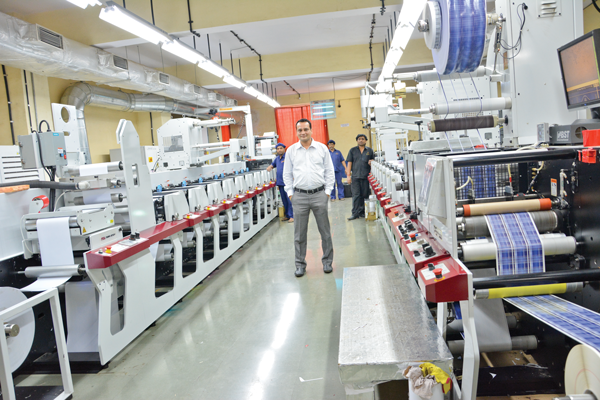
Prasanna Sahu, managing director at Barcom at the 32,000 sqft plant in Vasai
Each year and experience played an instrumental role in the continued success of Sahu as an entrepreneur and Barcom as a company. “Printing labels is complex. Labels are the primary source of communication between a company and its customers. It’s even more complex in the pharma segment where it is not just the appearance but also safety and regulations, which are of prime importance,” explains Sahu.
Besides the Mark Andy flexo presses, Barcom is also equipped with the latest finishing equipment such as Rotoflex slitter-rewinders and high-end Nikka cameras. With the complexity that comes with label printing, using various raw materials such as inks, anilox, plates, and the substrate itself, it was necessary to become proficient with how each of them is utilised.
At Barcom, in its machinery infrastructure, the company has the technologies to produce the best in labels and in quick time. “Some people think anything is possible with technology, but it can bring restrictions if you do not know what you are doing,” cautions Sahu. Sahu did it a lot differently than most, which might be a large factor in the company’s success today. Sahu has built his team in a smart way – a team that can create new value when confronted with obstacles. He hired engineers and diploma holders and trained them for its operations. Having the right team in place helps us work according to our requirements in pre-press, press, and post-press operations,” says Sahu.
He gives his team autonomy to take decisions. Sahu leaves most of the operational work to his managers while he focuses on business development. “There’s a team spirit among those working at Barcom. It shows in the low attrition rate,” he says.
The point of pivot
Barcom’s clients include blue-chip companies like Cipla, Marico, Aditya Birla Retail, Reliance Retail, Pernod Ricard, and Lupin Pharma, among others. The company’s USP is in the innovations it does in its labels, which Sahu says, are both secure and food safe.
Sahu says his company is armed with an ISO 22000:2005 food safety certificate and the capability to deliver 100% defect-free labels. “First of all, we are an ethical company. By ethical, I mean a commitment to deliver on time, every time, and ensuring the confidentiality of our customers’ designs. We are very conscious and that’s why we have got in-house platemaking,” he adds.
In 2014, Barcom installed the Esko CDI 4835, in addition to Esko’s packaging software. The company also brought in DuPont’s thermal processor, Cyrel 1001 TD and Cyrel Digiflow 1000.
It’s true that having an in-house pre-press facility could save time and money. It may even garner greater control over the production process. And according to Sahu, there’s the element of data safety. “For us, getting the pre-press in-house was a necessity, as buyers demanded high quality as well as security of their jobs. Sending jobs to be processed outside of the company’s premises meant exposing it to counterfeiting.”
Barcom today produces 100 jobs a day, ranging from a few 100 sqm to 50,000 sqm. The ability to quickly produce labels for its clients, which the in-house platemaking facility provides, only enhances Barcom’s standing among its customers, which today demand just-in-time deliveries.
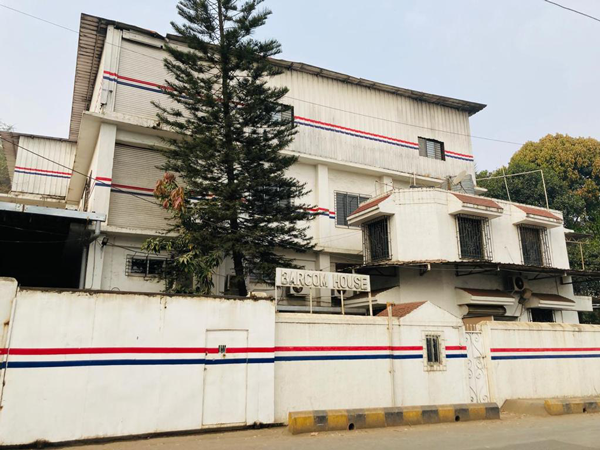
The DuPont edge
Around 80% of label jobs Barcom produces are repeat jobs. When running a job, anything can happen – plates may get damaged. At times, customers call to execute an urgent job, or make last-minute modifications.
“While we have not faced many plate damages, if a plate does get damaged, we never take a job off the press, we simply produce a new plate. With our Cyrel Fast system, we can make a new plate in 30 minutes which is faster than the time required for a job changeover. We have to address last-minute changes to our customer requests too. It saves us time, and allows us to produce labels without any blemishes,” says Sahu. Having in-house platemaking eliminates all these worries.
He adds, “As the phrase goes – in the print business, customers always require their supplies yesterday, never tomorrow.”
While embellishments may not be a big requirement while executing pharma jobs, the challenges come by way of fine elements. “These labels have to be clean, crisp, the printing has to be absolutely correct, plus there are
things like colour matching, all of which are very critical,” says Sahu.
And the onus of meeting these critical requirements lies not only on the presses but also the flexographic printing plates, says Sahu, where DuPont technologies play a major role when it comes to print consistency throughout the print run, high-quality standard with screen ruling of 150 lpi or more, as well as low gradients as close to zero as possible.
Over the years, Barcom has moved from Cyrel DFUV plates made on the Digiflow to the Cyrel Easy EFX plates with built-in flat top dots.
Growth and expansion
Sahu is candid about the impact on business during the Covid-19 pandemic, and the subsequent lockdown, particularly the first wave. And like many other segments of industries, the pharma sector was also affected.
“Some of our pharma customers too moved to manufacture products in the hygiene space like sanitisation products. It was a short-term boom but it has now plateaued. With logistics constraints we saw that print buyers were forced to procure labels locally,” says Sahu. But, as demand and logistics are moving towards normalcy in the pharma sector, Barcom business too has started picking up.
The pandemic crisis aside, Barcom has been one label printing company that has been continuously investing in machinery. The fleet of ten Mark Andy flexo presses is a testimony to the company’s positive outlook. With a monthly capacity to print up to ten lakh sq/m labels and an annual turnover of over Rs 65-crore, Barcom has been growing at about 35% year-on-year.
According to a recent data released by market research firm AIOCD AWACS and reported in the media, the moving annual turnover of the pharma industry as of April 2021 was Rs 1.52-trillion up from Rs 1.43-trillion in April 2020. A 4% spend on packaging, and a sizeable requirement for labels would be positive news for the label manufacturing companies.
“There was a brief lull, but we hope to return to the pre-pandemic growth,” says Sahu, whose plans of starting a plant in Eastern/North Eastern India with a 20,000 sq/ft site, were put on hold due to the pandemic. “The plan is to initially move a set of equipment from Vasai plant to Eastern India plant. Plans of installing new machines will depend on how the business there performs,” says Sahu optimistically. But then, for Sahu, his optimism
has always paid off.
Factfile
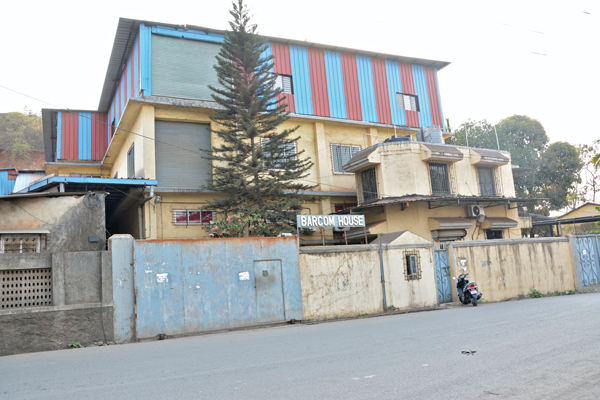
- Established in 2002
- Location: 32,000 sqft plant in Vasai, Maharashtra and proposed 20,000 sqft in Eastern/North Eastern India
- Specialises in PS labels
- Equipment: Ten Mark Andy flexo presses, eight Rotoflex, four Nikka, four Monotech inkjet coding machine with online converting line, GSE automatic ink dispenser
- Production capacity: 10-lakh sqm per month
- Employees: 200
DuPont’s Take
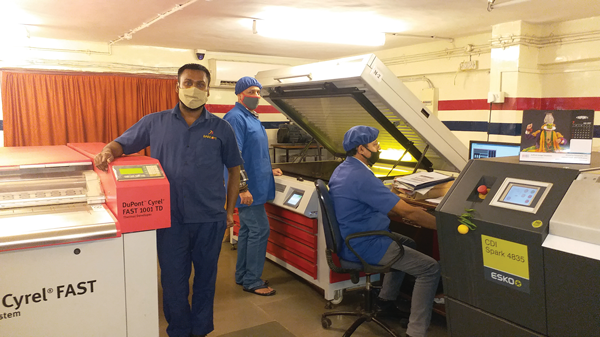
Barcom operates with firm principles – consistent quality, expertise in their domain, strong partnerships with customers and suppliers, delivering Just-In-Time services with the right investments in pre-press, press and post press equipments. This makes them a force to reckon with.
Flexo in the FAST lane: Case Study powered by DuPont


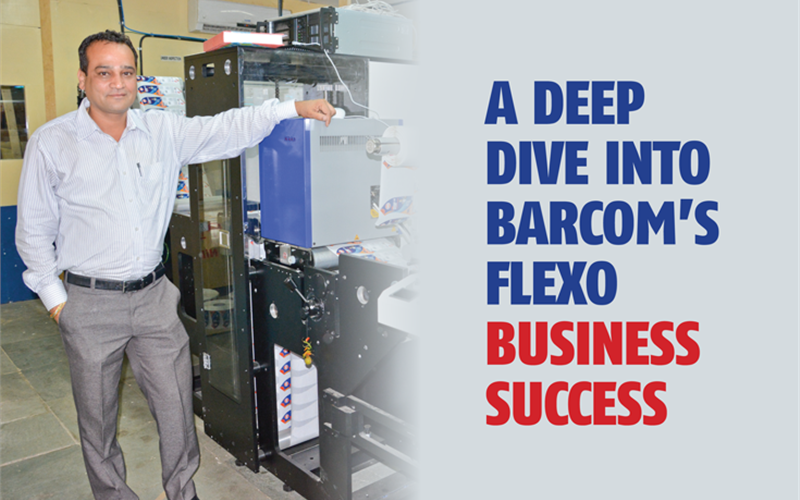
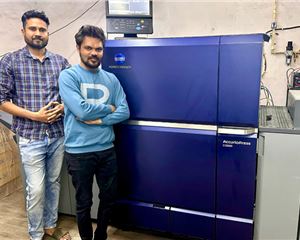
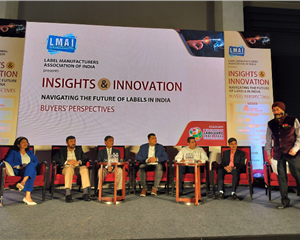
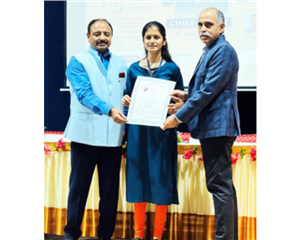
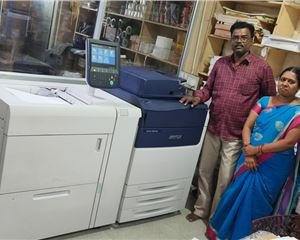
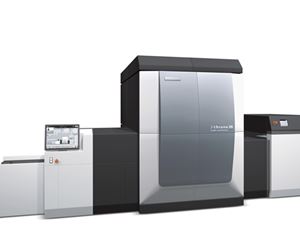






 See All
See All